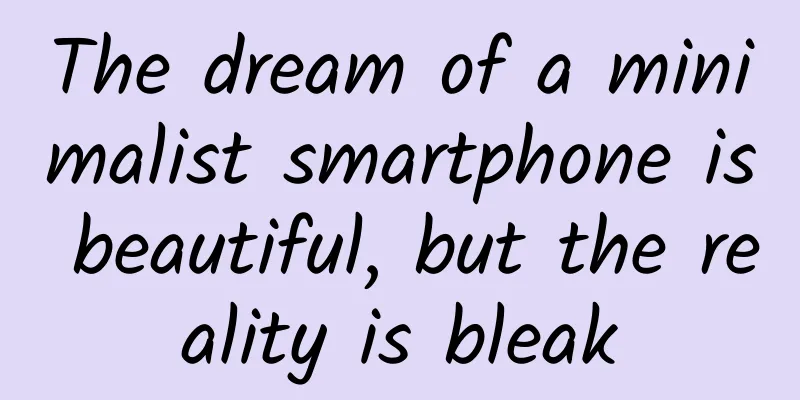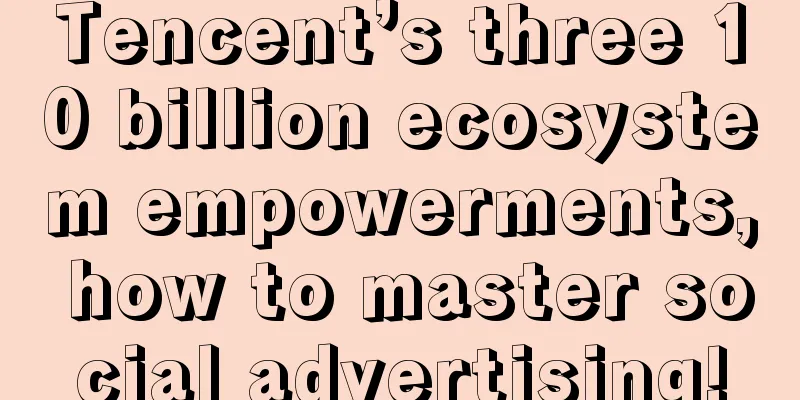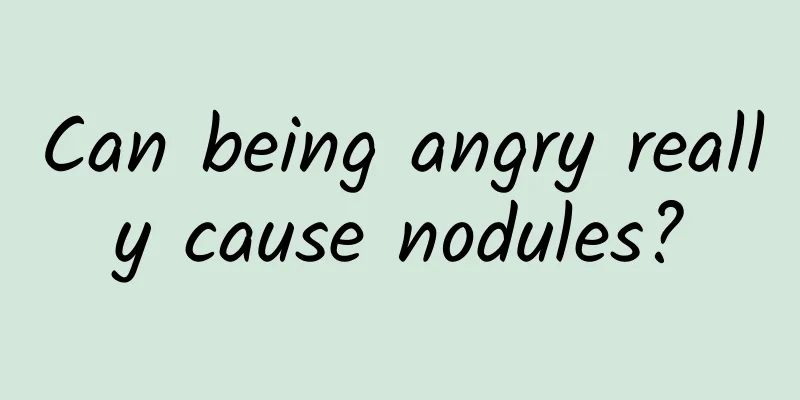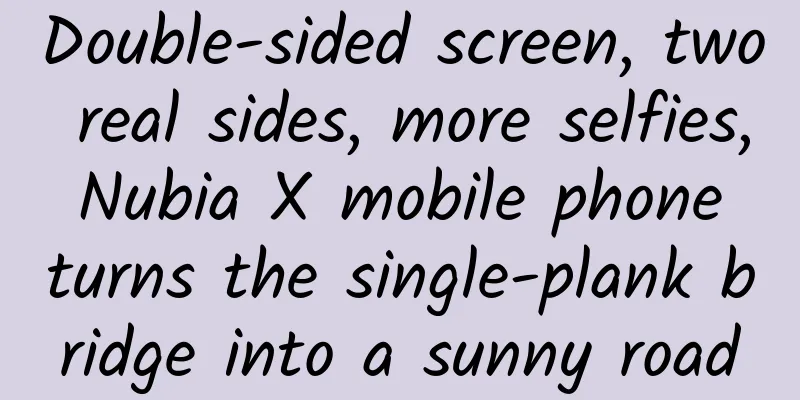The dream of a minimalist smartphone is beautiful, but the reality is bleak

|
On July 1, Wired published an article saying that the dream of creating a minimalist smartphone is beautiful, but the reality is very bleak. Why is it so difficult to make a smartphone that people are not so obsessed with? Smartphones are amazing. Smartphones are terrible. They are the paradox of modern life: these devices help us hail taxis, find friends, food, dates, and cute pets, but they also disconnect us from the real world, kill our attention spans, turn us into FOMO, and turn our world into a series of endless streams of information that we can’t help but scroll through, afraid to miss something more interesting or better on social networks. You may have had grand visions of throwing your smartphone into a lake and living like your ancestors, without technology, stress, or constraints. But my smartphone is still in my pocket. The conflict between the incredible usefulness of smartphones and their frustrating side effects has been well documented. Articles titled “Why I ditched my smartphone” are as common as those titled “Why I left New York” or “Why I quit Twitter.” “Digital detox clinics” have sprung up, purporting to help people break their addiction and put down their devices, if only for a few hours. Some Airbnb listings now even proudly announce that they don’t offer cellular service or WiFi, a feature that’s prioritized as much as offering hot tubs and gas grills. Light Phone Meanwhile, people’s mixed feelings about smartphones have given rise to something entirely new: devices that free you from your devices. The Apple Watch is designed to stop your phone from ringing, at least at first. You can spend $295 on the Punkt MP01, which does just making calls and texting. Or you can go a step further: spend $150 on the Light Phone, which is about the size of a credit card, stores nine numbers, makes and receives calls, and little else. These devices are more about freeing you from your smartphone than replacing it. That thought led Kaiwei Tang, a designer from Brooklyn, to work on the Light Phone a few years ago. He began conducting user studies, asking people to swap their smartphones for old Nokia or Motorola flip phones. For just six hours. Or for a whole day. Every participant reported the same thing: After the first hour of torture, they felt clearer, more relaxed, and freer. That made Tang realize the significance of the move. "The value people get is not from the phone," Kaiwei Tang said, "but from disconnecting from the Internet, social media, and smartphones." But a funny thing happened when the Light Phone came out. People loved the phone and the idea of keeping it simple without a smartphone. But they all said if the Light Phone only had this one thing, it would be perfect. Kaiwei Tang has a long and growing list of “this one thing”: Some people want GPS to order an Uber or track their loved ones. Some want a camera to capture the first great experiences and moments in their lives. Some want music, some want text messaging, some want NFC (near field communication) to make it easier to pay for purchases… the list is endless. Suppose you were in Kaiwei Tang's shoes and you wanted to build a Minimum Viable Smartphone, a phone that did just the basics. Call it the MVS 1. The MVS 1 obviously needs a microphone and speaker, and some kind of full keyboard—text input is so important. You'll definitely want WhatsApp, though, since it basically includes SMS. You can get by without Facebook, Twitter, Instagram, and email, which are the things that anyone who hates smartphones hates. You do want a camera, maybe two; nobody's going to buy a phone that can't take selfies. GPS and NFC are also essential features for people. You'll also want built-in storage for music and podcasts, Apple Music, Spotify, Pandora, YouTube, and some games. A web browser is also a must, although you'll be able to see the cluttered world of social media through that open window. Suddenly, the MVS 1 sounds like a regular smartphone, just without the most popular apps. Relationship between user and mobile phone Ultimately, the problem with your iPhone isn’t that the camera is too close to the GPS chip, but that you unlocked your phone to check the weather, but a notification popped up, so you checked your email, and then, in the blink of an eye, eight hours have gone by and you’re now immersed in 700 photos from your ex-girlfriend’s Instagram feed. Tristan Harris, a former Google design ethicist who has long studied how technology affects people, calls these “leaky interactions.” Harris wrote a blog post last year urging people to “reboot your phone with mindfulness meditation,” which means turning off most notifications, removing apps from your home screen, and putting as many barriers as possible between you and the things that easily attract your attention. Now, if you're an Android user, you can do that by installing a "minimalist" launcher. These are launchers that replace your phone's home screen with something a little simpler. Sure, they're primarily designed for old people with failing eyesight, but they work well for smartphone junkies, too. Or you can just throw all your apps into the same folder, making each one harder to find so you don't open them as often. A company called Siempo is making a launcher that replaces the entire home screen with a text box that asks, "What do you want to do?" Siempo's original plan was to build a minimalist smartphone, an e-paper device called the Minium that resembled a traditional Nokia candy-bar phone. Eventually, the company launched a Kickstarter campaign for a more traditional smartphone, this time called the Siempo. After the project fell far short of its funding goal, Siempo's founders turned their focus to building software for existing smartphones. "It seems people are more attached to their phones than we thought," the founders said in a Medium post after the project ended. "And with our new approach, you can enjoy the benefits of Siempo without leaving the comfort zone of your existing device." People want their smartphones to be simpler - as long as they are still smartphones. People may talk about wanting to ditch their smartphones, but few actually do. Billions of people now have a device in their pockets that has all sorts of features. Are some of these features harmful? Of course! But that’s the trade-off between peace of mind and the enormous value of having all these features in your pocket at all times. It’s nice to imagine ditching your smartphone for a little while, but you won’t do it forever. The question isn’t whether our phones are too powerful or too versatile, but how to manage the relationship between you and your phone: so that you control the relationship, not the other way around. That’s much harder than building a phone without Facebook. AI helps Virtual assistants like Alexa and Siri could give smartphones superpowers and make them more appealing. Kaiwei Tang said he actually considered building Alexa into the Light Phone, perhaps turning the 9-number dial on the keyboard into a shortcut to Amazon's voice assistant. Alexa wasn't great enough when the company started, and a subpar voice assistant does nothing to ease the pain of using a smartphone. That virtual assistant technology is improving, and it will be close to perfection sooner than you think. With these AI assistants, checking the weather won’t require you to dodge attention-grabbing, FOMO-inducing apps. You’ll just ask the AI assistant a question, get an answer, and move on with your life. You’ll pull out your smartphone only when you’re ready to lose yourself in its many temptations. Because there’s nothing wrong with indulging yourself once in a while. As a winner of Toutiao's Qingyun Plan and Baijiahao's Bai+ Plan, the 2019 Baidu Digital Author of the Year, the Baijiahao's Most Popular Author in the Technology Field, the 2019 Sogou Technology and Culture Author, and the 2021 Baijiahao Quarterly Influential Creator, he has won many awards, including the 2013 Sohu Best Industry Media Person, the 2015 China New Media Entrepreneurship Competition Beijing Third Place, the 2015 Guangmang Experience Award, the 2015 China New Media Entrepreneurship Competition Finals Third Place, and the 2018 Baidu Dynamic Annual Powerful Celebrity. |
>>: Apple's self-driving test vehicles have increased to 66, aiming to catch up with Google and GM
Recommend
Zhongshan travel mini program development and customization details, what are the tourism WeChat mini programs?
The emergence of mini programs has simplified the...
Promoting activation and retention: analysis of user growth system design
1. What is the user growth system? The evolution ...
The first electron beam was successfully accelerated. What exactly is HEPS?
March 14, 2023 The 13th Five-Year Plan for Nation...
Ant Eight-Handed King Three Courses: Prop Ball, Graphics, and Body
Course Catalog ├──Prop Ball | ├──1..20191026 Prop...
How to write an event planning proposal?
Before we start writing the activity plan, we mus...
Humidifiers can kill people? These three types of people are not recommended to use them →
As the weather gets colder, whether in the north ...
Childhood memories are not gone, we just can’t read them|Tech Weekly
Compiled by Zhou Shuyi and Pingsheng Why do anima...
Mango TV is just an example. It is not reliable for TV stations to get involved in video websites.
Since the beginning of this year, there have been...
Full interpretation of the Central Document No. 1 of 2022: What does it specifically include? Attached is the latest interpretation of the full text
The Central Document No. 1 of 2022, "Opinion...
Why do ducks just stand there in the rain without moving when it rains?
When it rains in the summer, most people will rus...
A fire broke out in a shopping mall in Hong Kong. How can fire safety be ensured in large commercial complexes?
A fire broke out at the World Trade Center in Cau...
Zhihu recommended core logic and traffic guide!
This article studies the Zhihu platform from the ...
How to use AFNetworking in Swift
[[147119]] Apple released the new Swift language ...
Android security protection journey---Analysis of several solutions for applying "anti-debugging" operations
1. Introduction I have introduced many cracking r...
How can APP achieve fission-like dissemination and capture the user's psychology?
The most important thing about fission-style comm...









